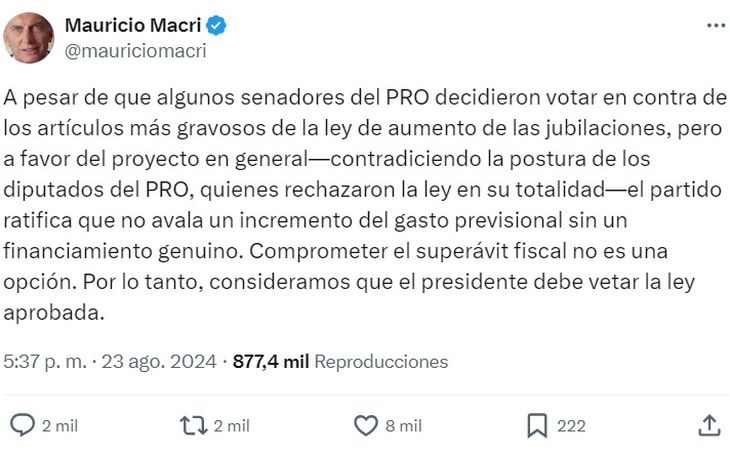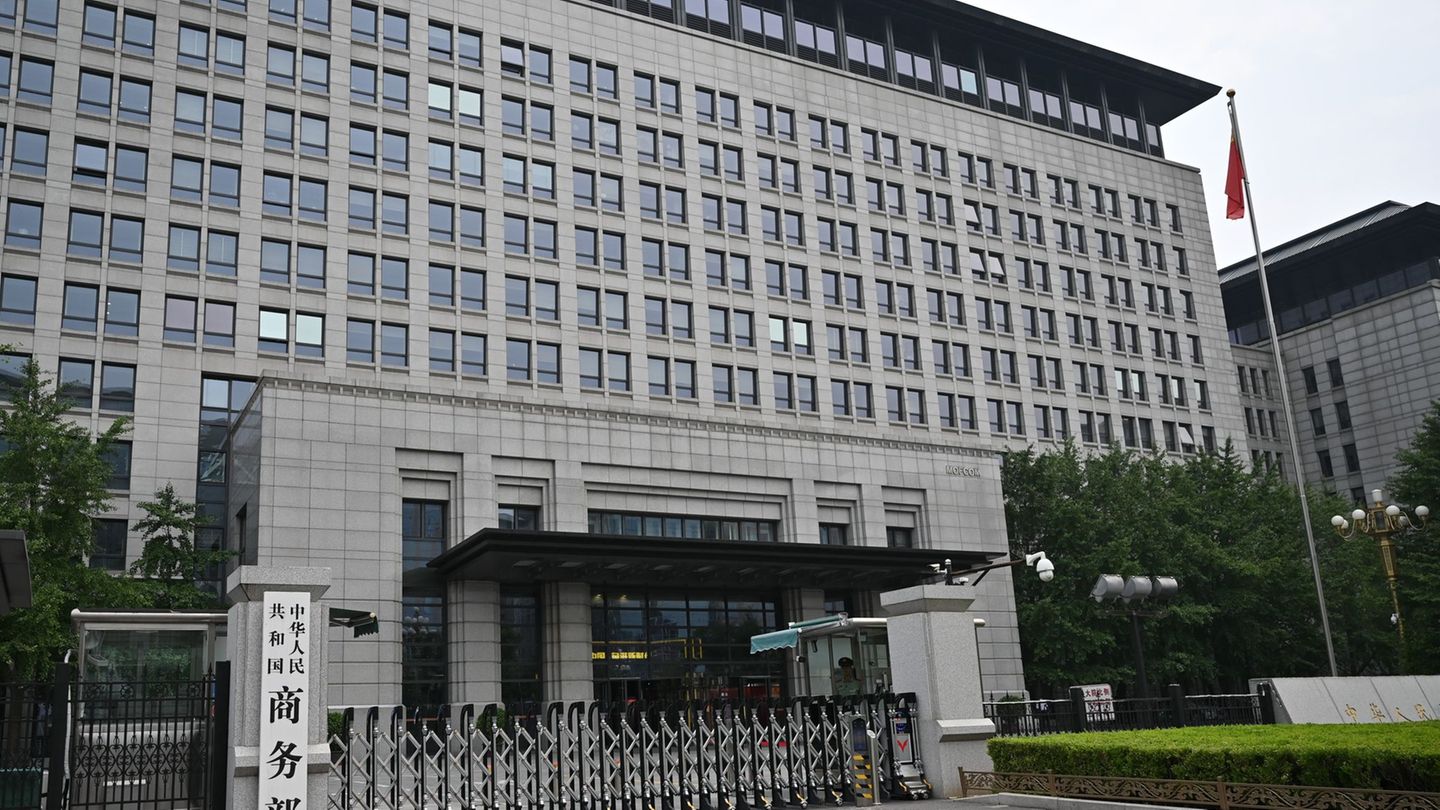He Congress last week approved a new pension reform which gives retirees extra compensation of 7.2%due to the mobility modification made by the Government through the Decree 274/2024, which incorporated an increase of 12.5%, the inflationary jump of January was not covered, which was 20.6%. Furthermore, according to specialists, this parliamentary decision “reduces long-term risks” because it prevents the generation of lawsuits in the future. Despite this, the president Javier Milei announced that he will veto the law.
Milei said that the new formula generates a debt increase of 62 points with respect to GDP“They took a measure that costs the Argentines US$370,000 million and that ruins the lives of our children, grandchildren and several future generations,” the president emphasized at the Rosario Stock Exchange. This estimate, the president said in a television interview, is “in perpetuity”.
However, experts on the subject disagree with the official view. Even the former head of the National Social Security Agency (ANSES) and current president of IERAL, Osvaldo Giordanohe stressed Scope that “The new mobility formula is an opportunity to give greater sustainability to fiscal balance”.
In this regard, he stressed that the new law approved by parliament “corrects” two central points of retirement. The first, that the Constitution provides that The mobility formula must be sanctioned by law and that is not currently happening because the Executive implemented it through DNUwhich can lead to lawsuits in the future. And, on the other hand, he mentions that “fix” the difference with the January split that the Government did not cover in its entirety.
It should be noted that, in the connection between one formula and another, the Government granted an additional increase of the 12.5% to cover the inflation of January, but it was located in the 20.6% and the assets lost 7.2 points, which this new formula attempts to remedy.
Retirements: How much does the new formula approved by Congress cost?
The study of the Congressional Budget Office (CBO) shows that the expenditure of the new mobility formula would represent an additional 0.44% of GDP in 2024in case the bonuses continue to be paid until the end of the year $70,000 for lower-income retirees. And, if they are discontinued, the added cost is equivalent to 0.74% of GDP until December.
retirements OPC.jpg
In 2025, depending on the possible scenarios to be applied, The fiscal impact would be between 0.69% and 0.80% of GDP If the bonds are considered, while that additional $70,000 is discontinued, an expense of between 1.14% and 1.25% (given that, in this case, it should be compensated with an extra remunerative sum because the retirement cannot fall below a percentage stipulated in the normative text of the basic basket, according to the new law promoted by the opposition).
The biggest impact for the following year is due to the fact that the new formula contemplates another adjustment in March of each yearfor 50% of the difference between salary variations (taken through the RIPTE) and the Consumer Price Index (CPI) of the previous year.
Meanwhile, the Certified debts with the provinces that did not transfer their pension funds amount to $703,353 million (current), amount equivalent to 0.13% of GDP, according to the OPC.
Pensions: Is there a possibility of a veto?
Yes ok The president has already announced that he will veto the initiativeaccording to the votes in both Chambers, it is likely that there will be two thirds of the votes to insist on the measure and, thus, re-sanction the law. However, the opposition needs the PRO to obtain two thirds and, days ago, the former president Mauricio Macri supported the veto, which leaves open the possibility that the party will not vote in favor of the bill again.
macri.jpg

Retirements: Why is the new formula “an opportunity to make fiscal balance more sustainable”?
At this point, Giordano stressed the possibility of “focusing” the $70,000 bonuswhich is currently granted to all minimum pensioners, and thus, give greater sustainability to the fiscal balance. The former head of ANSES, stressed that, with the new rule, the agency is given greater tools to defend the State in case lawsuits are generated against it, since it will not be possible to object that the update of salaries was done by law, as specified in the Constitution.
“The project requires an increase in spending which can be compensated through a simple decree that better focuses the bonus,” says the IERAL report, and Giordano himself endorsed this position by pointing out that “not all minimum pensioners live only on it, so a study can be done and better focus this additional.”
Retirements: What about purchasing power?
The purchasing power of pensions had a significant drop since 2017 and hit a low in February 2024. From there, specialists suggest that there would be a timid recovery.
Minimum wages, including the compensatory bonus, suffered a real loss of 43% between 2017 and February 2024, according to the analysis of Nadin Arganarazpresident of the Argentine Institute of Fiscal Analysis (IARAF). Considering that the floor was in February, between November 2023 and August 2024, it is estimated that the real fall was 2.5%.
“The central issue of the last few months is the real recovery of the assets and the real fall of the bonus, since It has been worth the same amount for six months, at $70,000.. This led to a peak in June, and from then on, a real decline in total income began. In fact, between June and August, real income already fell by 1.2%,” the economist pointed out.
For the rest of the assets, The actual decline between 2017 and February 2024 was 62%, although between November 2023 and August 2024, the real increase was 5.8%. In the absence of a bonus, the central issue of the decline in recent months (due to the lack of updating), a greater real recovery of the pension was achieved. “As long as inflation falls, the real pension will grow month by month, given the mobility formula currently in force,” IARAF said.
Source: Ambito




